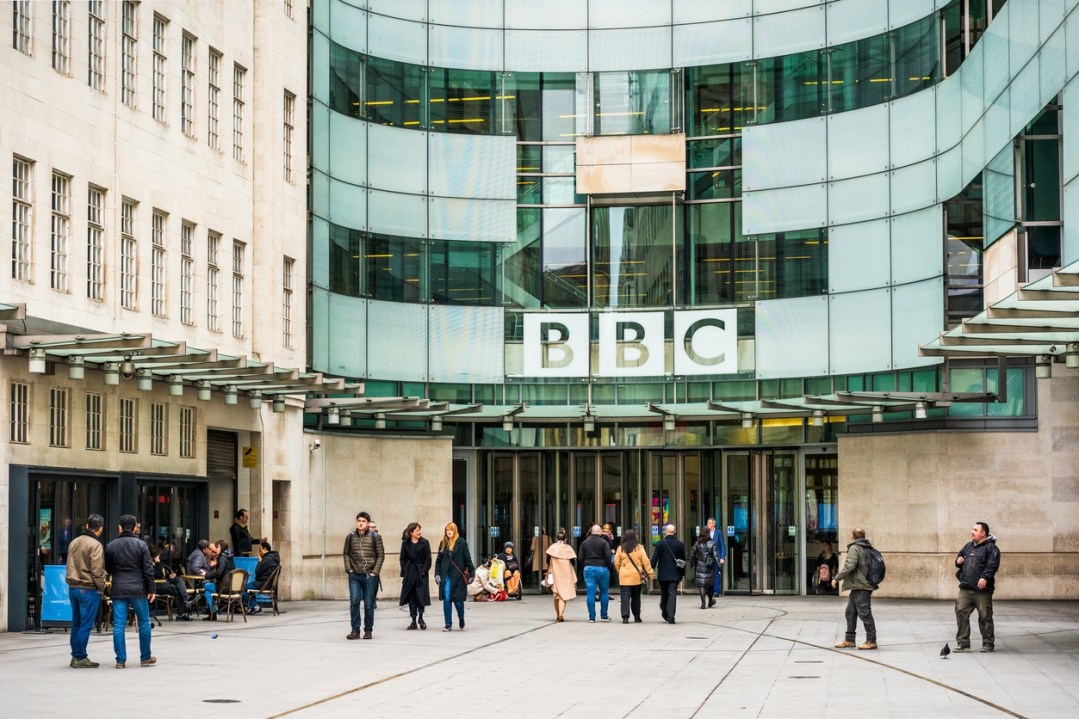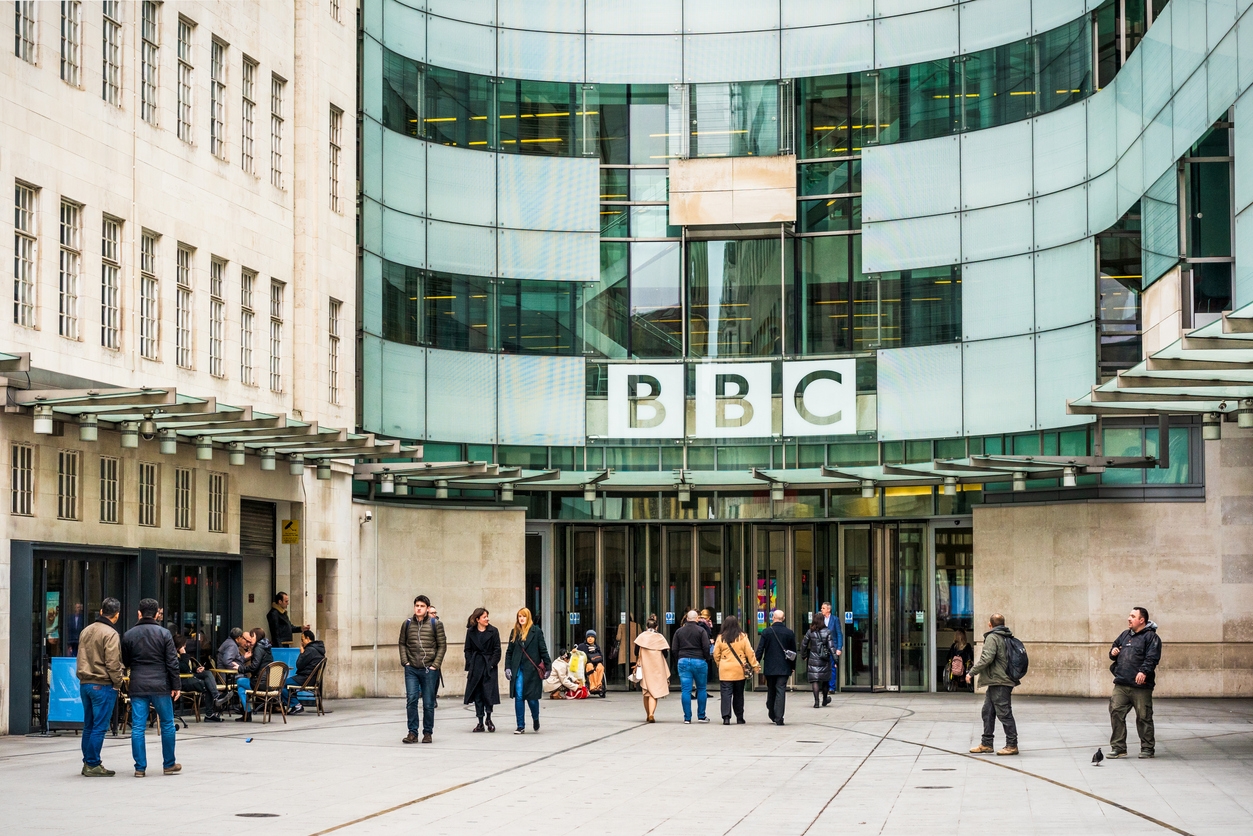The great liberal economist Adam Smith was one of the first people to sound the alarm about the damage that occurs when vested interests get too big for their boots.
‘People of the same trade seldom meet together, even for merriment and diversion, but the conversation ends in a conspiracy against the public,’ he warned.
Had he lived in the social media age, I wonder what he would have made of the BBC’s Nick Robinson encouraging people to lobby the media regulator Ofcom about two new efforts to launch current affairs TV stations in Britain to compete with his own dominant outlet.
In a tweet containing a link to a Guardian article about plans by Sir Robbie Gibb and the Murdoch empire to start the new channels, Robinson wrote: ‘Will a British “Fox News” channel improve debate, decision making and democracy in this country? Send your answers to @Ofcom.’
His implication was clear: we don’t want skewed coverage on our airwaves so let’s campaign to force Ofcom to revoke or withhold licences for these new channels. But his argument depends on a hugely complacent assumption – that what is already on offer is a gold standard and such bias does not currently exist.
In which case, I wonder if Robinson watched the BBC News at 10pm on Friday, when a BBC reporter covered a demonstration by US Black Lives Matter, in a segment that amounted to little more than crude sloganising in its favour.
Branding BLM ‘the civil rights movement of today’, the reporter began by telling viewers that nearly 60 years after Dr Martin Luther King’s iconic speech in front of the Lincoln Memorial ‘it is clear that not enough has changed’. In fact, I’d agree with this, but that’s a value judgment, not a piece of news reporting.
After stacking up further, highly contestable value judgments like layers of pastry, the reporter put the cherry on top: ‘This is about equal treatment for black Americans. For them to be treated the same as white people by the police and in other areas. That’s what Black Lives Matter is about.’
Is that a fact? What about the Marxism and the mayhem of the BLM protests? Or the proposed ‘defunding’ of the police? Or what about some context regarding the high number of interactions African Americans have with the police? There was none. Just as the BBC earlier failed to report the evidence of Cressida Dick to the Commons home affairs committee about ‘enormous disproportionality’ in the London crime rate, so it withheld important evidence again here.
The BBC went on to characterise the American BLM demonstration as being a call to demand ‘basic rights’. But that’s a category error. The basic rights were won by Dr King and Rosa Parks and all the other great names of the civil rights movement. The issue now is better outcomes.
And are there possible barriers to such outcomes other than ‘police racism’? Of course there are. The level of family breakdown that consigns so many young black men to growing up without a positive male role model could be one. The opposite, after all, is true of Asian Americans who as a minority group are outperforming all other races. Or what about the prevalence of a corrosive gangster culture that glorifies conspicuous consumption from the proceeds of crime? From the BBC there was not a peep about any of this.
There are two plausible ways for the BBC to try and justify its funding via a compulsory licence fee. One is to ensure rigorous, fact-based objectivity. The other is to allow views in the news, but to ensure that there is viewpoint diversity.
The BBC has chosen neither. I have cited last Friday’s report as one recent cut-and-dried example of bias but there are countless others, from the ‘largely peaceful’ UK BLM demonstrations that left dozens of police officers injured (a police officer ‘knocked herself off her horse’ don’t you know?) to the tone of its US presidential election reporting, to the whole execrable affair of the Last Night of the Proms, and before that its post-referendum Brexit coverage.
This approach – the result of the BBC recruiting people with far too narrow a range of views and allowing the ensuing groupthink to go unchecked – is utterly incompatible with the corporation’s funding model. No wonder recent polling shows such a surge in the number of people thinking, to put it in the technical jargon, ‘why should I pay for this anymore?’
As Robinson’s attitude shows, there is little prospect of the BBC voluntarily changing its ways. So the licence fee really is going to have to go. One should not underestimate just what a dramatic cultural change this will be. Many establishment-minded Tory MPs will hate the idea. But, rather like Brexit, it has been rendered inevitable by the over-reach of the institution involved.
Soon enough we shall know whether Boris Johnson’s administration is ready to dip a toe in these waters by decriminalising non-payment of the licence fee from 2022. It certainly should not regard such a measure as being sufficient in its own right. In fact it is laden with extra perils. For starters, might the BBC respond by destroying the credit ratings of millions of people by winning county court judgments against them in civil law? And what might the political fall-out from that look like?
Back to Adam Smith. For many years running British television as a near-monopoly did indeed deliver high standards that were the envy of the world. But the fatal flaw of oligopolies – the ever-present temptation for cartels to be formed, in this case an opinion cartel – has destroyed all that.
New market entrants have the potential to transform things for the better. Millions of people would prefer a ‘British Fox News’ to the British Anti-Fox News currently on offer. Millions more still would flock to an outlet offering balanced coverage that keeps woke tendencies on a shorter leash.
But the rise of new outlets won’t solve the licence fee problem. It will just see more and more viewers stop watching the BBC. This nettle will have to be grasped.








Comments